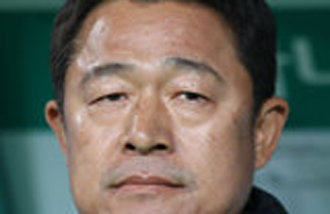Science School Chair Secretly Graded
Science School Chair Secretly Graded
Posted February. 22, 2006 04:32,
The faculty of the Korea Advanced Institute of Science and Technology (KAIST) is planning to secretly evaluate the job performance of the schools chairman, 55-year-old Dr. Robert Laughlin, and publicize the results at the plenary session of the faculty association today.
The assessment is considered to be a confidence vote for Laughlin, whose term as the chairman expires this July. Whether the results of the evaluation would prevent the chairman from serving another term is still in doubt, however.
Laughlin, a Nobel laureate in physics, was inaugurated as the chairman of KAIST on July 14, 2004 on a two-year contract. The contract is automatically extended for another two years if the board of directors and the chairman himself do not oppose it. It is reported that he hopes his contract will be extended.
According to KAIST yesterday, the faculty association of the school, which is led by Kang Suk-joong, a professor in the department of Materials Science and Engineering, held a plenary session on January 16 attended by 118 professors, where 95 percent of them agreed to assess the job performance of Laughlin.
The association conducted polled all 409 of the schools professors from February 7 to 10 on 11 items in four categories, including the chairmans leadership, efforts to secure funding, sense of commitment, and achievements in enhancing the schools image.
The association also evaluated the chairmans job performance on a scale of one to five (from A to E) and asked opinions about extending his contract.
It is the first-ever confidence vote of an incumbent chairman conducted by the KAIST faculty association.
A member of the association said, As far as I know, many professors made negative assessments. The assessment results were reportedly made available to the chairman and the schools board of directors, led by Lim Gwan, chairman of the Samsung Advanced Institute of Technology, which has the authority to appoint the schools chairman.
Issues-
Laughlin went to the U.S. for vacation a day before the schools entrance ceremony for freshmen this year. He also bumped heads with KAIST professors by unilaterally proposing plans to make the school a private university or a general university and to operate the school with the focus on undergraduate courses. Some professors even resigned in opposition to those plans.
There are mixed views in the science and technology community regarding the KAIST chairmans job performance. Some say that it amounts to shaking down a foreign university chairman, while others see it as a fair expression of opinions by professors.
Laughlin shared a Nobel Prize in physics for his work in explaining the fractional quantum hall effect in 1998 when he was working in the Department of Applied Physics at Stanford University. He was appointed KAIST chairman while working as the head of the Asia Pacific Center for Theoretical Physics.
Ki-Jin Lee doyoce@donga.com
Headline News
- Iran blames US sanctions for helicopter crash that killed president
- Pres. Yoon vetoes investigation into death of marine
- “Croatia Holds a Business Forum in Seoul…Looking forward to the development of trade relations”
- Samsung names new chief for semiconductor business
- Seoul City plans to expand welfare benefits







